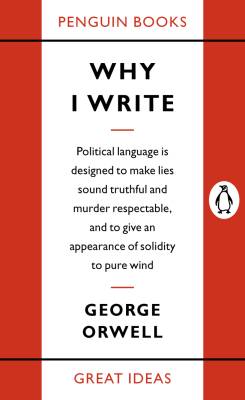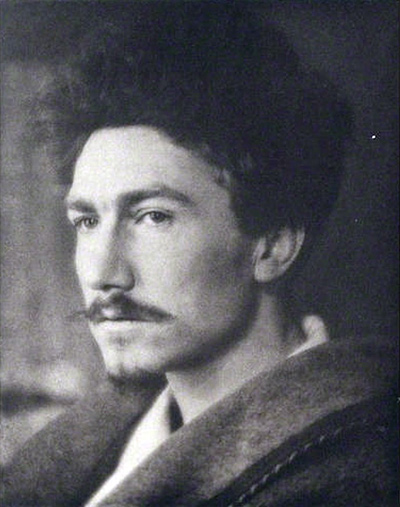Writing Rules! Advice From The Times on Writing Well
The Times has recently published a few features that we consider gifts to English teachers everywhere, including a summer "How To" section of the Sunday Book Review, and a new series, called "Draft," on the art of writing, which features essays by grammarians, historians, linguists, journalists, novelists and others.
Below, we collect some "rules" we've derived from these features and from other pieces on the Times site, along with links and related activities we hope writers at any stage will find fun or useful — or both.
Before you go, please note Rule 10, in which we ask for your writing advice.
Rule 1: Listen to the Voice Inside Your Head
In a post for Draft, Verilyn Klinkenborg notes that he is often asked what his "writing process" is. "My answer is simple: I think patiently, trying out sentences in my head," he writes.
He advises student writers to do the same, in contrast to school-writing, in which students are "asked repeatedly to write papers that are inherently insincere exercises in rearranging things they've read or been told." (Or, we have to add, are school exercises masquerading as sincere personal essays, such as the one spoofed in this Onion classic.)
Mr. Klinkenborg advises, "Before you learn to write well, to trust yourself as a writer, you will have to learn to be patient in the presence of your own thoughts."
You almost surely have a voice inside your head. At present, it's an untrained voice. It natters along quite happily, constructing delayed ripostes and hypothetical conversations. Why not give it something useful to do? Memorize some poetry or prose, nothing too arcane. A rhythmic kind of writing works best, something that sounds almost spoken. Then play those passages over and over again in your memory.
Try Mr. Klinkenborg's suggestions and see what happens. And if you'd like to record the voice in your head, or some of the sentences you begin to experiment with, try keeping a journal. The Personal Tech section of The Times reports this week that you can now do that via phone apps, without the "inconvenience of paper."
Rule 2: Learn From the Masters
A classic Times series, "Writers on Writing," asked contemporary writers from André Aciman to Hilma Wolitzer to talk about their work.
Glean insight from authors like Jamaica Kinkaid on why she writes; Allegra Goodman on calming the inner critic; and Carl Hiaasen on scrounging for material in newspaper headlines.
What are your favorite bits of advice? Copy them out for future inspiration.
Rule 3: Read Like Writers
To learn "How to Write Great," immerse yourself in great literature, which, according to writer Roger Rosenblatt, can be anything from "Harold and the Purple Crayon" ("the lessons of the 'Odyssey,' minus the sex") to "The Great Gatsby" ("Jay Gatsby, who stood straight and sober in the drunken Twenties, and who, nutty as his yearnings may have been, really was great").
What books do you admire most? Why? As Mr. Rosenblatt does in this essay, you might try writing a paragraph describing what you find important and enduring about a book or author, whether your choice is an official classic on everyone's list or an overlooked gem you think others should read.
Rule 4: Review the Rules
In his hilarious "How To Write," Colson Whitehead plays with shopworn advice that will be familiar to many student-writers. For instance:
Rule No. 1: Show and Tell. Most people say, "Show, don't tell," but I stand by Show and Tell, because when writers put their work out into the world, they're like kids bringing their broken unicorns and chewed-up teddy bears into class in the sad hope that someone else will love them as much as they do. "And what do you have for us today, Marcy?" "A penetrating psychological study of a young med student who receives disturbing news from a former lover." "How marvelous! Timmy, what are you holding there?" "It's a Calvinoesque romp through an unnamed metropolis much like New York, narrated by an armadillo." "Such imagination!" Show and Tell, followed by a good nap.
Before you read the rest of Mr. Whitehead's rules, you might brainstorm, alone or in a group, your own "Rules for Writing" — derived from what you've learned in school, from "real" writers, from your own experience, or from anywhere else. When you're finished, consider:
- Is there a difference between the rules you've learned in school and those you've learned about writing on your own?
- Which rules seem most sound to you?
- Do we need rules for writing?
Then, read the rest of Mr. Whitehead's essay, and compare the two lists. What did you learn about writing from his piece that you didn't know before?
Or, use his list as a model, and create a list of rules that spoof the advice on, or the clichés about, a topic you know well.
Rule 5: Study Sentences
In "My Life's Sentences," Jhumpa Lahiri writes:
In college, I used to underline sentences that struck me, that made me look up from the page. They were not necessarily the same sentences the professors pointed out, which would turn up for further explication on an exam. I noted them for their clarity, their rhythm, their beauty and their enchantment. For surely it is a magical thing for a handful of words, artfully arranged, to stop time. To conjure a place, a person, a situation, in all its specificity and dimensions. To affect us and alter us, as profoundly as real people and things do.
Sentences matter. In fact, Constance Hale notes that sentences can even act as miniature narratives. As Hale does, you might collect your own examples of great sentences that are mini-narratives.
Ms. Hale also explores the "Sentences of the Masters" to demonstrate the different effects of short and long sentences:
Gabriel García Márquez writes unhurried sentences that almost defy parsing. William Faulkner wrote a nearly 1,300-word sentence that ended up in Guinness World Records, but he used the five words "My mother is a fish" as a complete chapter of a book. Joan Didion can stop us short with simple truths, and she can take us on strolls down labyrinthine corridors.
Look for examples of interesting sentence structure and sentence variety in a work you are studying or reading, then write your own "copy-change" versions, in which you borrow another author's structure and use it to create your own piece.
You might also consider excerpts from children's book to review sound literary devices and explore the music that sentences make.
Rule 6: Write With Non-Zombie Nouns and Verbs
Delve into Strunk and White's fourth style reminder "Write with nouns and verbs" by reading about what Karen Sword calls "Zombie Nouns":
Nouns formed from other parts of speech are called nominalizations. Academics love them; so do lawyers, bureaucrats and business writers. I call them "zombie nouns" because they cannibalize active verbs, suck the lifeblood from adjectives and substitute abstract entities for human beings.
Fight those nasty zombie nouns with vivacious verbs.
And to consider tricky questions like "Do verbs have to be in the active voice?" and "When is the passive voice useful?" use the rules and examples in this post by Constance Hale.
Rule 7: Punctuate That Thought
In a post on exclamation points, Ben Yagoda writes
Habitual e-mailers, texters and posters convey quite precise nuances through punctuation, which is after all one of the points of punctuation. A friend's 12-year-old daughter once said that in her view, a single exclamation point is fine, as is three, but never two. My friend asked her where this rule came from and the girl said, "Nowhere. It's just something you learn."
Look through e-mails and texts you've sent for examples of "precise nuances" you've conveyed through punctuation. What "rules," like the exclamation-point rule cited above, do you think govern the use of punctuation in forms of communication like texts and I.M.'s?
How might an older generation less fluent in these methods get the unwritten rules wrong? (Teachers: sites like When Parents Text might be useful here, but please consider whether it is appropriate for your students first.)
Here are some punctuation marks to consider:
Exclamation points
Use Mr. Yagoda's post to examine and appreciate the role of the exclamation point in a sentence, then track exclamation points you see in "the wild"— in texts, e-mail, advertising, literature, or anywhere else. How do audience and purpose help determine when and why an exclamation point might be necessary or desirable?
Periods
Mr. Yagoda's post also alludes to the use of the period in the Obama "Forward." Slogan and what it suggests. What, exactly, does that period tell readers? What about the period the band Fun. has in its name?
Semicolons
Semicolons mystify many. In Semicolons: A Love Story Ben Dolnick recalls
When I was a teenager, newly fixated on becoming a writer, I came across a piece of advice from Kurt Vonnegut that affected me like an ice cube down the back of my shirt. "Do not use semicolons," he said. "They are transvestite hermaphrodites representing absolutely nothing. All they do is show you've been to college."
While Vonnegut's admonition may be harsh, Mr. Dolnick offers a good primer to using semicolons sparingly and eloquently, helping them understand the comma-period hybrid as writers and readers, which is useful, as one never knows where one might pop up.
Commas
Correct comma placement matters. Just ask Grandma:
Let's eat, Grandma!
Let's eat Grandma!
Use the Draft post "Fanfare for the Comma Man" as a jumping off point to examine comma use in a book you are currently reading. Copy sentences which include commas and use them to deduce the rules for proper comma use.
Then, turn to this post to check the accuracy of the comma rules you've come up with and check that your writers are following the rules.
Rule 8: Nobody's Perfect
Yes, Times writers and editors do make mistakes and the in-house feature "After Deadline," which the public can view, too, takes them to task by highlighting and correcting errors in grammar, usage and style that appear in print.
Use this blog to understand grammatical points, like subject verb agreement. Then, become a better editor of your own work by taking the After Deadline Quiz.
Rule 9: Fail
Learn from your mistakes and failures, a topic Augusten Burroughs tackles in
"How to Write How-To":
… to pass along the knowledge of how to succeed, first you must know how to fail. A great deal, if possible. This is essential because it's far more common (and easier) to make mistakes than to enjoy success. Being aware of potential points of derailment helps to better and more accurately navigate your readers past your own missteps so they can succeed where perhaps you first failed quite miserably.
Value mistakes, and the successes that grow from them, by keeping a portfolio of your work, including revisions and editing exercises. You might even reflect in writing on how your writing has progressed, or create a timeline of your development as a writer to see, laid out chronologically, how you've grown from as a writer over time.
Rule 10: Fill in the Blank
What would you add? Why? We invite you to tell us below.
Common Core E.L.A. Anchor Standards, 6-12
Reading
1. Read closely to determine what the text says explicitly and to make logical inferences from it; cite specific textual evidence when writing or speaking to support conclusions drawn from the text.
4. Interpret words and phrases as they are used in a text, including determining technical, connotative and figurative meanings, and analyze how specific word choices shape meaning or tone.
5. Analyze the structure of texts, including how specific sentences, paragraphs and larger parts of the text (for example, a section, chapter, scene or stanza) relate to each other and the whole.
6. Assess how point of view or purpose shapes the content and style of a text.
10. Read and comprehend complex literary and informational texts independently and proficiently.
Writing
4. Produce clear and coherent writing in which the development, organization and style are appropriate to task, purpose and audience.
5. Develop and strengthen writing as needed by planning, revising, editing, rewriting or trying a new approach.
10. Write routinely over extended time frames (time for research, reflection and revision) and shorter time frames (a single sitting or a day or two) for a range of tasks, purposes and audiences.
Speaking and Listening
1. Prepare for and participate effectively in a range of conversations and collaborations with diverse partners, building on others' ideas and expressing their own clearly and persuasively.
2. Integrate and evaluate information presented in diverse media and formats, including visually, quantitatively and orally.
Language
1. Demonstrate command of the conventions of standard English grammar and usage when writing or speaking.
2. Demonstrate command of the conventions of standard English capitalization, punctuation and spelling when writing.
3. Apply knowledge of language to understand how language functions in different contexts, to make effective choices for meaning or style, and to comprehend more fully when reading or listening.
 How is your new year's resolution to read more and write better holding up? After tracing the fascinating story of the most influential writing style guide of all time and absorbing advice on writing from some of modern history's most legendary writers, here comes some priceless and pricelessly uncompromising wisdom from a very different kind of cultural legend: iconic businessman and original "Mad Man" David Ogilvy. On September 7th, 1982, Ogilvy sent the following internal memo to all agency employees, titled "How to Write":
How is your new year's resolution to read more and write better holding up? After tracing the fascinating story of the most influential writing style guide of all time and absorbing advice on writing from some of modern history's most legendary writers, here comes some priceless and pricelessly uncompromising wisdom from a very different kind of cultural legend: iconic businessman and original "Mad Man" David Ogilvy. On September 7th, 1982, Ogilvy sent the following internal memo to all agency employees, titled "How to Write": Brain Pickings has a free weekly newsletter and people say it's cool. It comes out on Sundays and offers the week's best articles. Here's what to expect. Like? Sign up.
Brain Pickings has a free weekly newsletter and people say it's cool. It comes out on Sundays and offers the week's best articles. Here's what to expect. Like? Sign up.





 If this is indeed the year of
If this is indeed the year of 


